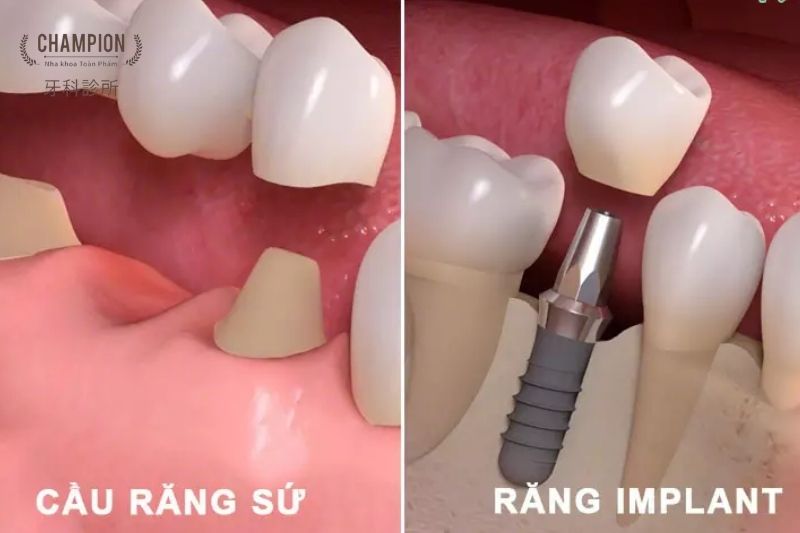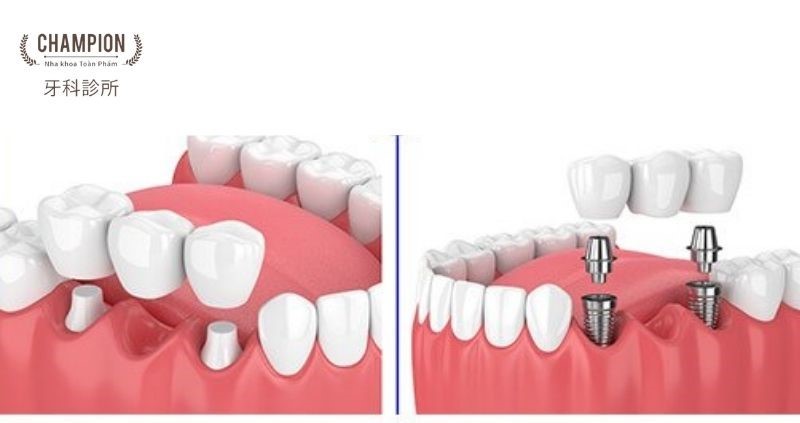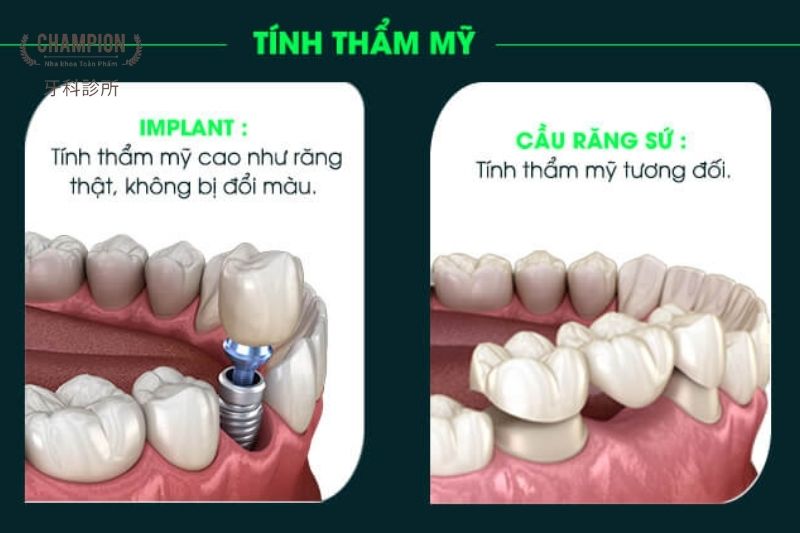When it comes to dental restoration options, dental ceramic crowns and dental implants are two of the most popular choices. Both of these options have their advantages and disadvantages, and at Champion Dental Clinic, we offer both services to our patients. In this article, we will compare dental ceramic crowns and dental implants to help you determine which option is best for your needs.
Dental Ceramic Crowns
Dental ceramic crowns are tooth-shaped caps that are placed over damaged or decayed teeth to restore their appearance and function. They are made of porcelain or ceramic, which is a strong and durable material that can withstand the daily wear and tear of normal use. Dental ceramic crowns are typically used for teeth that have a large filling, are cracked or chipped, or are discolored.
Advantages of Dental Ceramic Crowns
1. Natural Look
Dental ceramic crowns are designed to match the color and shape of your existing teeth, providing a natural look and feel.
2. Less Invasive
Compared to dental implants, dental ceramic crowns are a less invasive option. They do not require surgery, and the procedure can typically be completed in just one or two visits.
3. Cost-effective
Dental ceramic crowns are a more cost-effective option than dental implants. They are generally less expensive, and they do not require as much time or additional procedures.

Disadvantages of Dental Ceramic Crowns
1. Durability
While dental ceramic crowns are made of strong and durable materials, they are not as long-lasting as dental implants. They may need to be replaced after several years, depending on the individual patient and their oral hygiene habits.
2. Tooth Reduction
To place a dental ceramic crown, the tooth needs to be reduced in size to make room for the crown. This can weaken the tooth and make it more susceptible to damage.
3. Not Suitable for Certain Cases
Dental ceramic crowns may not be suitable for certain cases, such as teeth with extensive decay or damage.
Dental Implants
Dental implants are artificial tooth roots that are placed in the jawbone to support a replacement tooth. They are made of titanium, which is a strong and durable material that is able to fuse with the jawbone. Dental implants are typically used for patients who have lost one or more teeth, or who have damaged or decayed teeth that cannot be restored with a dental crown.
>> See more: Advantages and Disadvantages of Dental Implants
Advantages of Dental Implants
1. Durability
Dental implants are made of strong and durable materials that are designed to last for many years. They are a long-lasting solution for patients who want to replace missing or damaged teeth.
2. Natural Look and Function
Dental implants provide a natural look and function that is similar to natural teeth. They are customized to fit the patient's mouth, and they can be used to replace one or more teeth.
3. Improved Oral Health
Dental implants can improve oral health by preventing bone loss in the jawbone. They stimulate the jawbone and prevent bone loss, which can lead to problems with the remaining teeth and affect the structure of the face.

Disadvantages of Dental Implants
1. Cost
Dental implants are a more expensive option than dental ceramic crowns. They require surgery and additional procedures, which can increase the overall cost of the treatment.
2. Time
Dental implants require a longer time commitment than dental ceramic crowns. The process can take several months, as the implant needs to fuse with the jawbone before the replacement tooth can be attached.
3. Surgery
Dental implants require surgery, which can be uncomfortable and may require a recovery period. Patients may experience pain, swelling, and bruising after the surgery, and they may need to modify their diet and activities for a few days or weeks.
Dental implants are more costly than dental ceramic crowns, which may be a consideration for some patients. In addition, the implant procedure can take longer to complete, typically requiring multiple appointments over the course of several months. Some patients may not have the patience or availability to undergo the lengthy process of implant placement and restoration.
Another disadvantage of dental implants is that they may not be suitable for everyone. Patients with certain medical conditions or lifestyle habits such as smoking may not be eligible for dental implants due to the increased risk of implant failure. In contrast, dental ceramic crowns can be a viable option for most patients, provided that they have adequate tooth structure to support the crown and maintain good oral hygiene.
In summary, both dental ceramic crowns and dental implants have their advantages and disadvantages. The best option for each patient will depend on their individual needs and preferences, as well as the recommendations of their dentist. At Champion Dental Clinic, our experienced team of dental professionals is committed to helping our patients achieve optimal oral health and providing personalized treatment plans tailored to their unique needs. Contact us today to schedule a consultation and learn more about our dental ceramic crown and dental implant services.

Vietnamese & English: (028) 5411-2295
中文: (028) 5411-2297 172 Nguyen Luong Bang, Tan Phu Ward, District 7, Ho Chi Minh City.
Fanpage: Champion Dental Clinic 牙科診所
Zalo: Champion Dental Clinic
Youtube: Champion Dental Clinic 牙科診所
 Champion Dental Clinic
Champion Dental Clinic



